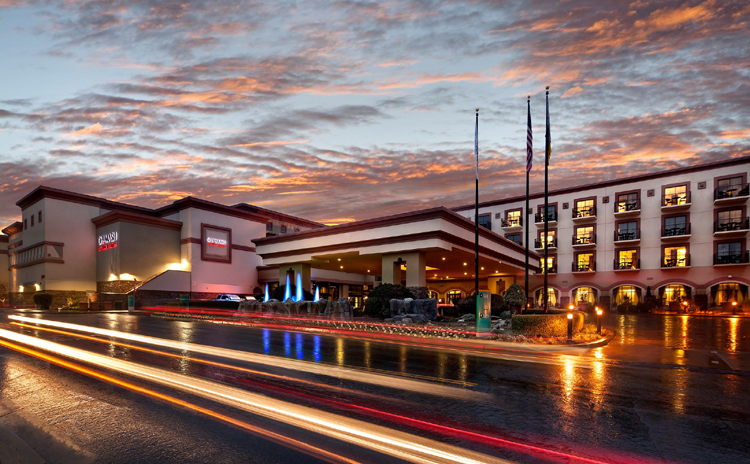The edge of wine country in California’s Santa Ynez Valley is the site of the latest water war. A group of landowners there are rolling the dice with an 1897 lawsuit in an attempt to stop an expansion of the Chumash Casino and Resort.
Amidst the pastoral landscape where only the mountains are higher is where you’ll find the Santa Ynez Band of Chumash Indians 12-story tower being built. The tribe is shelling out $170 million on the massive expansion of its Chumash Casino and Resort and has also acquired an additional 1,400 acres for housing of residents of its reservation.
The landowners who dug up and dusted off the 19th-century suit say the Valley is being ruined by the Chumash. They say that the Valley, which accommodates the only wine-tasting day trip from Hollywood and was the backdrop for the 2004 Alexander Payne directed film “Sideways,” and the land being utilized for the build out, isn’t part of the Chumash’s federally recognized reservation, according to Bloomberg. Subsequently, the landowners have brought the case to court in hopes that the judgment from the 1897 suit is applicable and will prevent the tribe from tapping the local creek for the resort. The threat of choking off the tribe’s water supply comes when water is like liquid gold in California where a four-year drought has left the state parched. It also coincides with the conflict growing between Indian tribes and local communities over the casino industry.
The tribe enjoys sovereign immunity and as such its property isn’t subject to local safety and environmental regulations, according to Steve Pappas, the executive director of Save the Valley LLC, the group suing the tribe. Last year California officials sent the tribe’s chairman, Vincent Armenta a letter expressing, among other things, concern over the projected 36,000 gallon a day increase in water usage by the casino. As part of the tribe’s renewed gaming compact with the state, in August it agreed to address local environmental concerns. That however isn’t good enough for Pappas who says the Chumash has been has been taking advantage of its sovereign immunity status to acquire land, power and wealth. As a result Pappas’s group uncovered the 1906 judgment, which followed the 19th-century suit. That suit against the Indians who were living on the Catholic Church’s land was originally filed by the bishop of Monterey who wanted to establish living terms for the Indians; therefore he restricted water use to domestic purposes.
Save the Valley claims that the 75 acres the casino in on east of a creek, the water supply, was never formally made part of the reservation, which means that the acreage must comply with local land use rules. If the judgment is successfully applied, the water will be limited to irrigation and domestic purposes for tribe members living on the east side of the creek, and prohibited for use by the casino.
Land in trust is held for the tribe by the government, which has moved the case to a Los Angeles federal court, arguing that the case involves the question of sovereign immunity. Whether or not Save the Valley will be permitted to resurrect the 1897 lawsuit will be decided by the judge.



